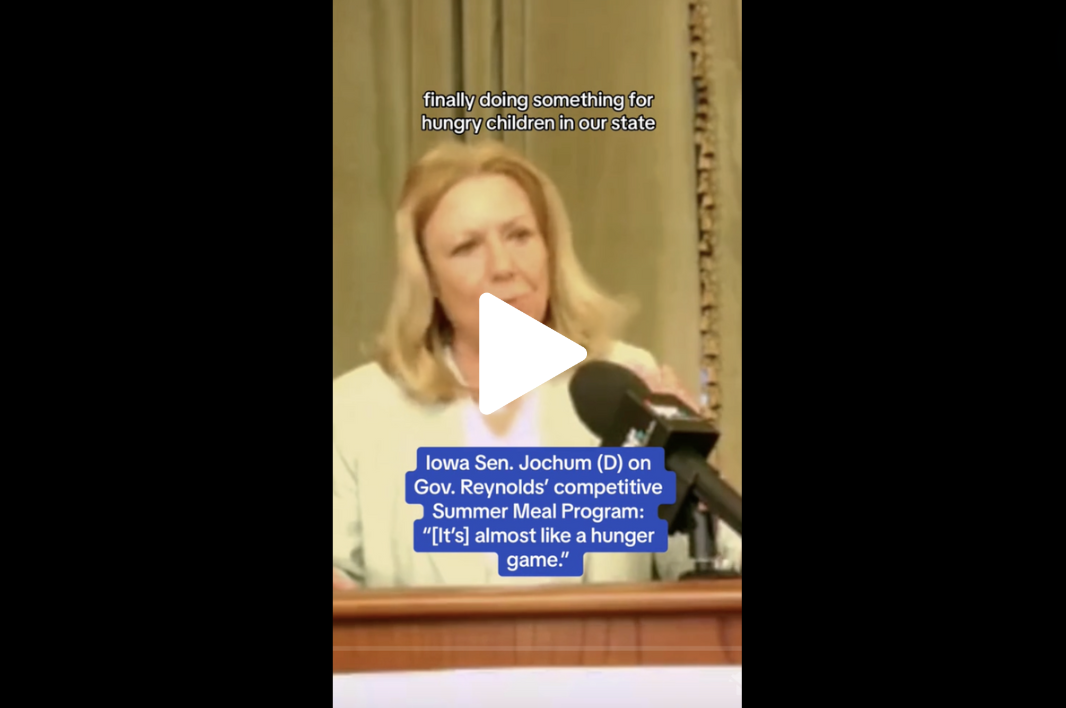
Guest op-ed from Ireland Larsen, a Drake University junior who secured Cory Booker’s one caucus night delegate in the state.
The vivid memories I have from my first encounter with the political realm have never left me. Fourteen years old and a freshman in high school, I became all too familiar with the uncomfortable and defying feeling of knowing nothing outside of my own tiny bubble. It was a powerless feeling, and an awakening one.
I listened as classmates of mine rattled off the probability of local elections and I couldn’t help but want to escape the conversation. The wrenching feeling of being in the dark forced me to decide whether I would throw a blanket over my personal ignorance to the political world and pretend that it didn’t apply to me, or if I would muster up the courage to take a small step toward the monster of a quest called “understanding politics.” The decision I made that day changed my life.
Pleads to get the youth out to vote have become ever more present with elections approaching. Young voters are being called upon to fulfill their duty as active members in society, so why aren’t they showing up? This failure is often attributed to laziness or apathy.
While some of those claims may have an underlying truth, this idea severely undermines and misrepresents younger generations. It is polarization, intense competitive nature, and the uncertainty of substantial political change that causes young people to turn their heads away. In order to motivate young voters, we must change the stigma surrounding our political climate into one that is more engaging.
[inline-ad id=”1″]
For the longest time, I hated politics the same way many of my peers do. I despised the power it had to pit us against one another and create an environment where sitting down at the dinner table seemed impossible. The need to always be aware of all news, to score a spot on the best campaigns, and to be in the spotlight often causes fear of not being engaged enough.
Additionally, the inability to make a difference holds young people back. It is difficult to truly work hard for what you want, and the uncertainty that you will make a difference makes it even more challenging. Like most other young people, I haven’t stopped hating that side of politics, but I did begin to see the hidden beauty in it that I wish was more visible.
Politics is powerful. They have the power to polarize our nation and to create feelings of hatred. However, they also have the power to bring people together and motivate people to fight for one another. Politics can drive you into the mud, or it can lift you up but only you can decide which it’ll be.
To create positive political change requires loving your peers so deeply that hate stands no chance, despite their beliefs. It requires a deliberate drive to understand and know more, without ever being discouraged by the mounds of tasks ahead of you. Most importantly, it demands faith. You must continue to believe that remarkable change is possible even if you don’t see the finish line.
Before February 3rd, 2020, I didn’t know the importance of young political engagement either. I had been volunteering for Sen. Cory Booker’s presidential campaign with every free minute — knocking doors, making calls, setting up events on campus. I remember the feeling of empowerment I received from being involved with a campaign aimed at unity and love.
On January 13th, Booker suspended his campaign for presidency. This feeling, I also remember. A question ran through my head rampantly, “What was the point of all this work?” The conclusion I came to shines a light on politics: just because we didn’t win, doesn’t mean we didn’t make a difference.
[inline-ad id=”0″]
I thought back to every call I made, every door I knocked, and every protest I marched in. To this day, when I think of our work on the campaign, I think not of the election results, but of the men and women we met and learned to love. Every interaction we had with others broadened our capability to understand a different perspective, and in turn, made us better leaders.
On caucus night, I decided I would vote for my candidate, one that showed me a world where politics didn’t carry the negative and consequential connotations that scare young people away. Three of my friends and I stood in the “other” (uncommitted) section as we were judged critically by our peers. Against the odds, we managed to turn four into over 65, scoring a delegate for a candidate who was no longer in the race.
That is the funny thing about politics — it always seems impossible until it’s done. We made history that night and all it took was believing in the difference we were making.
by Ireland Larsen
Posted 3/26/20
Politics

Biden marks Earth Day by announcing $7 billion in solar grants
The Biden administration on Monday announced the recipients of its Solar For All Program, a $7 billion climate program that aims to lower energy...

6 terrifying things that could happen if the Comstock Act is used to target abortion
Does 1873 sound like a really, really long time ago? Well, that’s because it is—but if Republicans and far-right anti-abortion activists have their...
Local News

No more Kum & Go? New owner Maverik of Utah retiring famous brand
Will Kum & Go have come and gone by next year? One new report claims that's the plan by the store's new owners. The Iowa-based convenience store...

Here’s a recap of the biggest headlines Iowa celebs made In 2023
For these famous Iowans, 2023 was a year of controversy, career highlights, and full-circle moments. Here’s how 2023 went for the following Iowans:...




